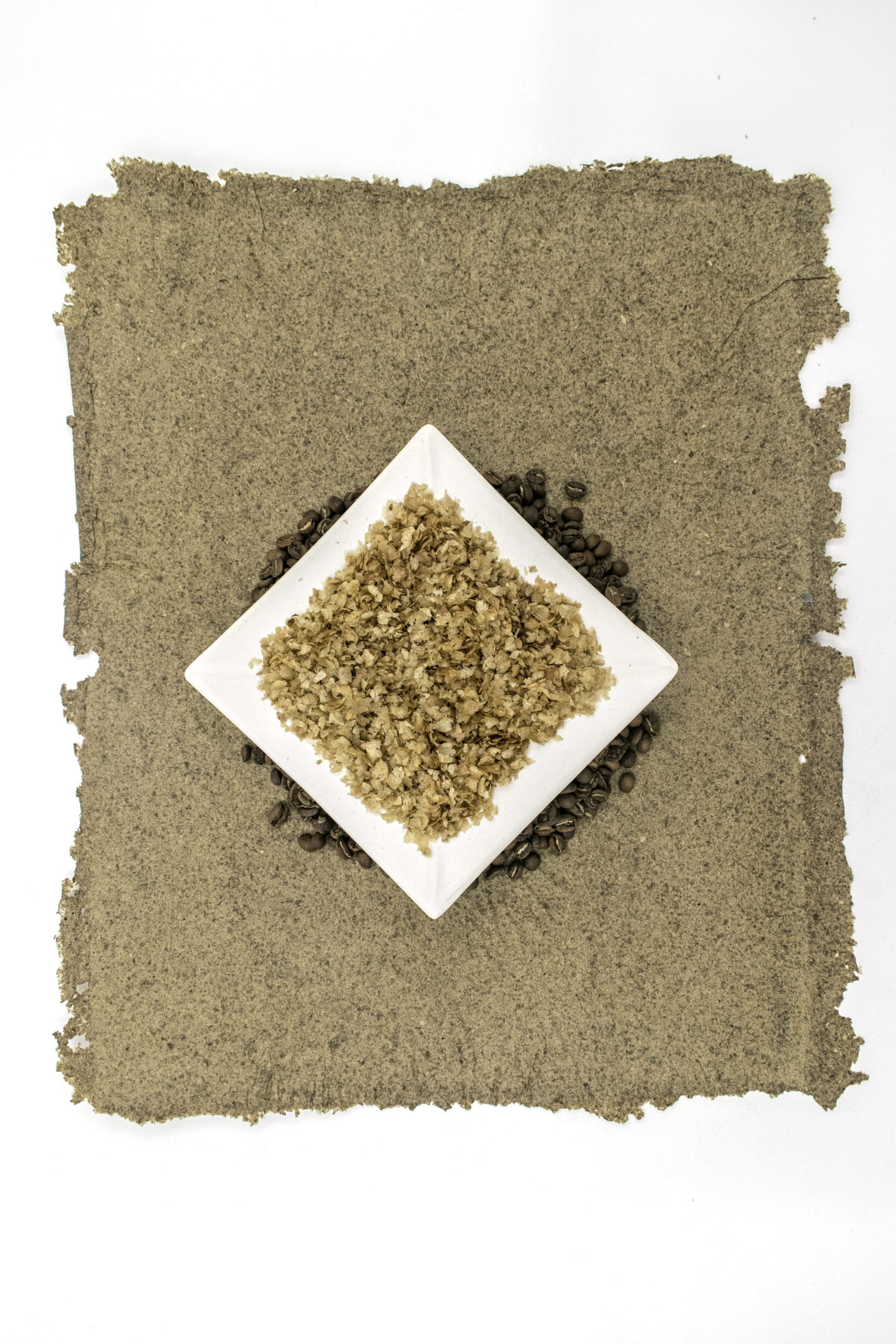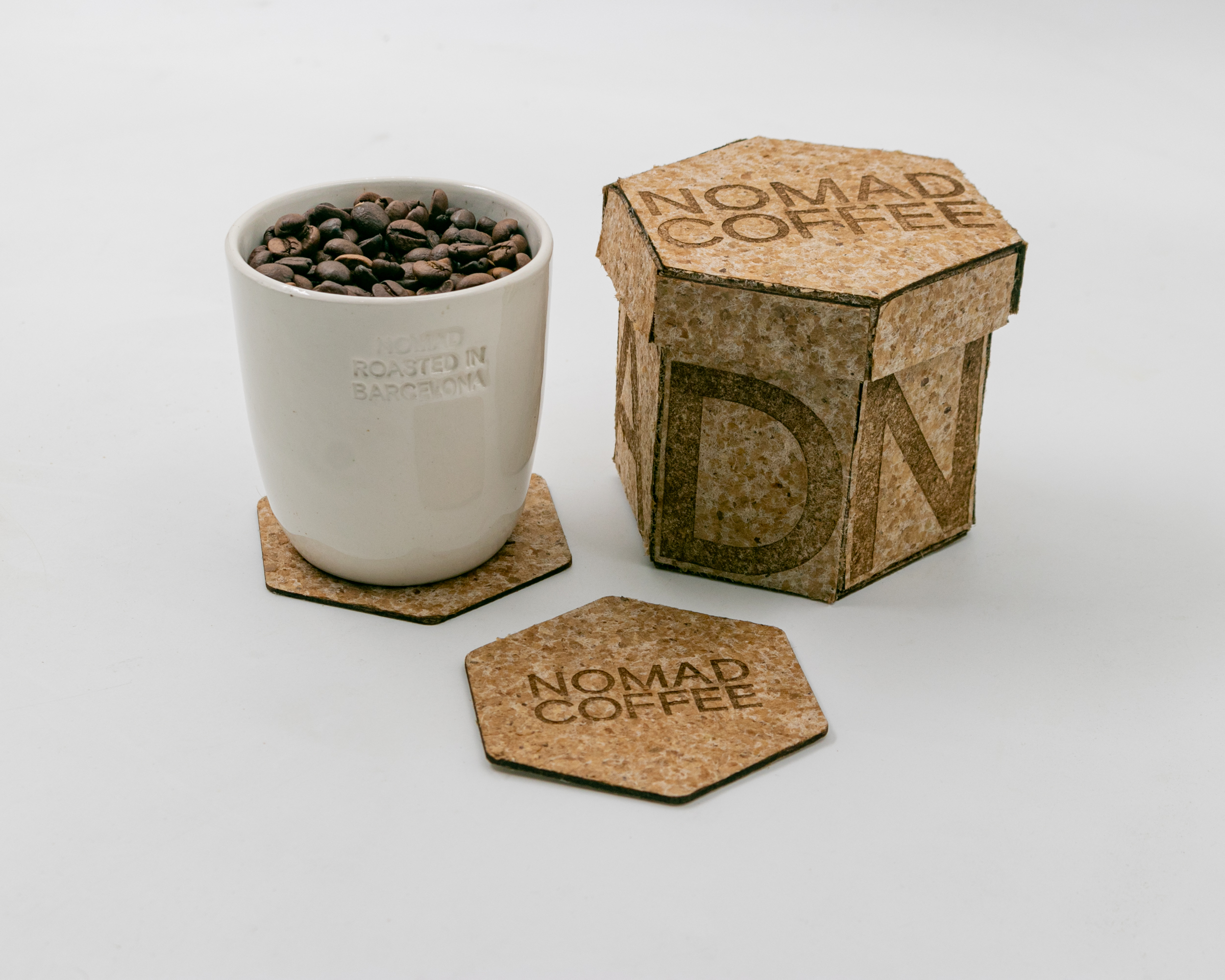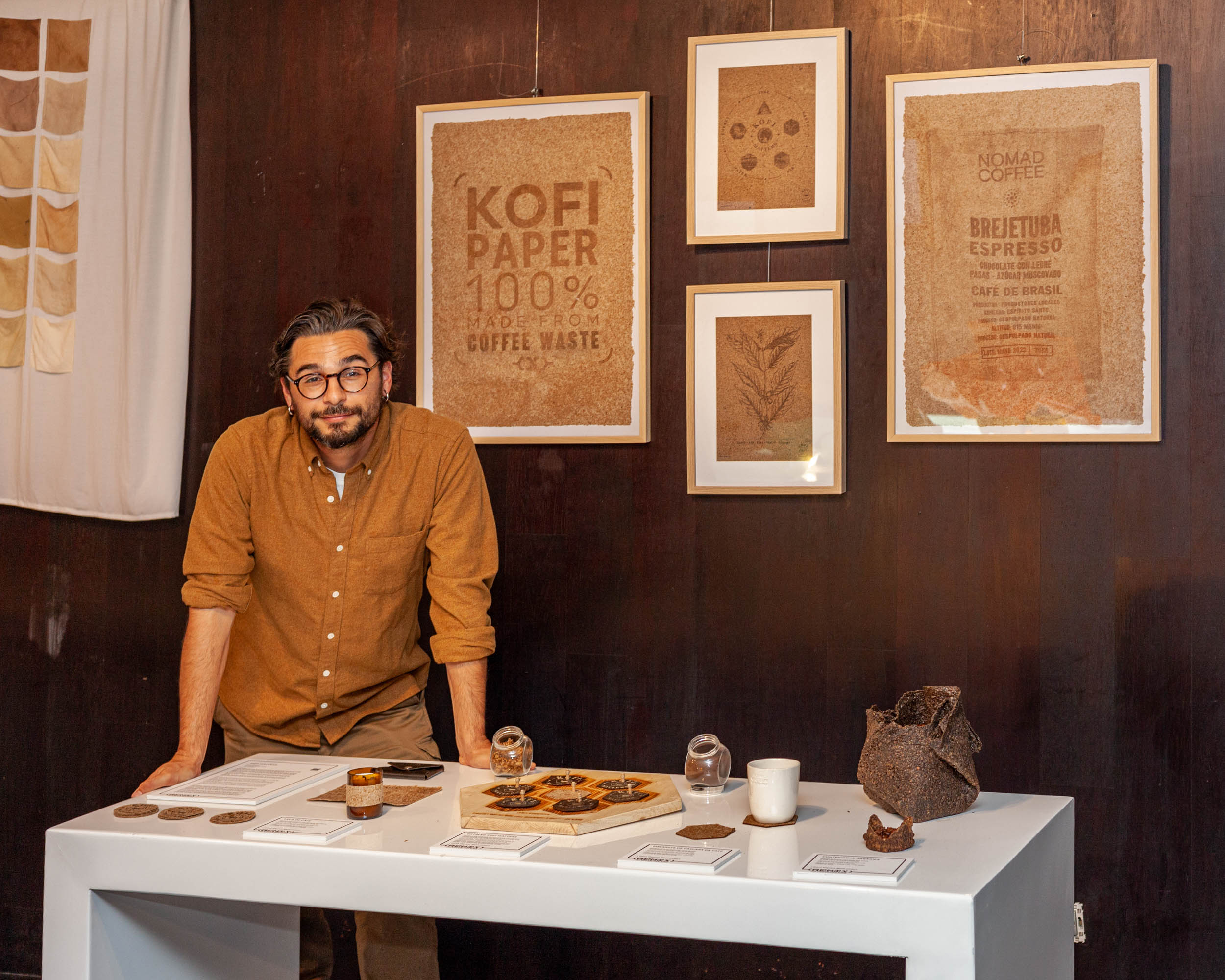Kofi Matters | Dihue Miguens

Useful information
- Team members
- Country
- —
- Keywords
- -
Detailed Description
Kofi Matters is a circular design agency focused in the coffee sector. We collect different coffee organic waste, from which we elaborate sustainable biomaterials that are upcycled into art and design products, and reintroduced back to the coffee companies that provided the waste, in order to reach their clients.
Project Details
- Does your design take social and cultural challenges and human wellbeing into consideration?
In the hand made paper workshops, I teach the basics for the production of paper with any waste source that consist of fibers. For this reason, the citizens that participated we able to be creative and produce their own papers. Some examples include the use of onion skin, and leaves from the garden.
With this generic knowledge, it opens the door for any new configuration of waste fibers in order to make specific uses for different paper textures, like for example organic canvas to paint art.
- Does your design support sustainable production, embodying circular or regenerative design practices?
The whole project revolves around the regeneration of value through discarded matter in order to restore the production system by closing the waste management cycle. From a discarded waste source, to a locally produced, sustainable design production method and material, that is elevated to design and art products for the coffee enthusiasts that consume the coffee.
Some examples of regenerative materials for the coffee industry are Kofi Paper, Kofi Card, Kofi Leather and Kofi Stone. Those coffee waste biomaterials are converted into products like packaging, organic containers, wallets, or posters.
- Does your design use principles of distribution and open source?
Since the beginning, as part of the REMIX EcoDesign Collective, we were transparent in our discovery, as we disclosed as open source the Kofi Paper recipe with a video tutorial recorded at IAAC. Watch here: https://www.youtube.com/watch?v=l1FyUSove_A
Currently +8K views.The project idea was to look for an abundant waste source, like the coffee husks, a waste that every coffee roasting shop has to throw, and be able to produce locally hand made paper. This process allows for high accessibility to the resources, knowledge, and infrastructure required to a small or big production.
More info of the production of Kofi Paper on the REMIX EcoDesign Collective Documentary, produced as an outcome of winning the STARTS European award of Collaborative Innovation: https://www.youtube.com/watch?v=EQO7tV9RitI&t=7s
I achieved the first hand made prototype of a coffee husks paper, and from there on we are collaborating with an artisanal paper mill that produces the specialty coffee paper for us. The first product is art posters related to coffee, made with coffee husks hand made paper and coffee ink, printed with artisanal silk print method, or engraved with laser.
Eventually, the Kofi Matters posters digital designs will be sent to the production facilities anywhere in the world, and printed on the locally produced Kofi Paper.
The objective is to be able replicate the project in many cities of the world (coffee roasters are virtually everywhere), closing circular waste streams in order to offer a local sustainable biomaterial for the coffee industry made of its own waste.
Part of our open approach has been to offer several workshops for the small production of hand made coffee paper. We collaborated with the project Almacén de Residuos, in an urban garden in Glories (Barcelona) with a workshops open for free for the public, with the catalan artisans museum, Centre d'Artesania de Catalunya (Barcelona), and with a big group of 10 year old students of a high difficulty school (Barcelona), even a workshop in collaboration with Kopernik, association that provides new ways of income to the Bali coffee farmers.
- Does your design promote awareness of responsible design and consumption?
The Bali experience is a great example. We are partnering with several local agents in Bali to have an ecosytemic positive impact. I visited the local roasting facilities, which produces a huge coffee husks mountain that is thrown in the passing river, with the potential harm of caffeine as a toxic chemical for plants and deregulating the ecosystem. They gave me access to as much husks as needed, as it is really a problem for them to manage it.
I went to connect with a local paper mill, all woman powered, and teach them how to make paper with the coffee husks, in order to become local producers of Kofi Paper.
Also, started a collaboration with Kopernik, in order to provide the coffee paper production knowledge to the local Bali coffee farmers. The idea is that if they can produce the paper, I can offer this extra income by purchasing it to them, and selling it to the coffee roasters shops on the island. This process of closing the waste cycle, avoids the negative impact on the environment, provides knowledge and extra income to the coffee farmers, and creates specific value for the coffee industry. All the system is improved by closing the Waste To Design Cycle.
And this approach can be deployed anywhere in the world, and be extended autonomously.
Images


